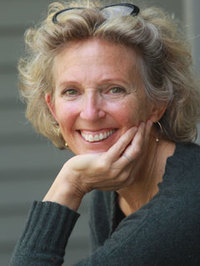Susan Engel
More books by Susan Engel…
“People who are curious learn more than people who are not, and people learn more when they are curious than when they are not.”
― The Hungry Mind: The Origins of Curiosity in Childhood
― The Hungry Mind: The Origins of Curiosity in Childhood
“Many teachers […] discourage uncertainty, emphasizing instead what they know, or feel the students should know. They are more comfortable encouraging students to learn trustworthy information than to explore questions to which they themselves do not know the answer. Instead of using school as a place to formalize and extend the power of a young child’s zest for tackling the unknown or uncertain, teachers tend to squelch curiosity. [...]
Few teachers readily see that they’re discouraging students’ questions, just as few parents readily see that they’re short-tempered with their children. […] One of the key findings of research is that children are heavily influenced not only by what adults say to them, but also by how the adults themselves behave. If schools value children’s curiosity, they’ll need to hire teachers who are curious. [...] in order to flourish, curiosity needs to be cultivated.”
― The Hungry Mind: The Origins of Curiosity in Childhood
Few teachers readily see that they’re discouraging students’ questions, just as few parents readily see that they’re short-tempered with their children. […] One of the key findings of research is that children are heavily influenced not only by what adults say to them, but also by how the adults themselves behave. If schools value children’s curiosity, they’ll need to hire teachers who are curious. [...] in order to flourish, curiosity needs to be cultivated.”
― The Hungry Mind: The Origins of Curiosity in Childhood
“We are so hell-bent on teaching disadvantaged children skills (both academic ones, such as reading, and social ones, such as obeying rules) that will lead to a job that we fail to teach them the pleasure of being part of a literate community, how to make their work meaningful, or how to draw strength from the group - skills that might offer them a satisfying life. Just as bad is that middle-class and privileged children are pushed to view every stage of their schooling as a platform for some future accomplishment ending in wealth. This deprives them of the chance to figure out what they really care about, how to think about complex topics with open minds, and how to find a sense of purpose in life.”
― The End of the Rainbow: How Educating for Happiness (Not Money) Would Transform Our Schools
― The End of the Rainbow: How Educating for Happiness (Not Money) Would Transform Our Schools
Is this you? Let us know. If not, help out and invite Susan to Goodreads.






























